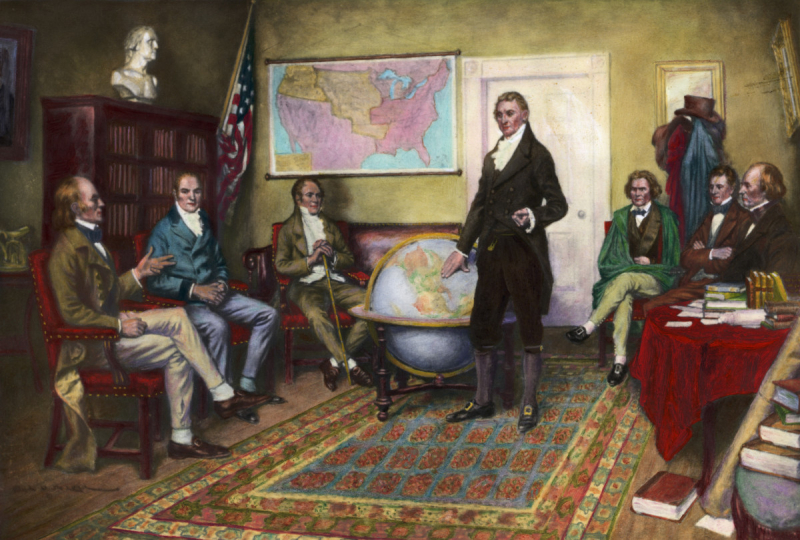Adams Was The Driving Force Behind The Monroe Doctrine
Adams started a career in international diplomacy in 1794, first serving as the United States' ambassador to the Netherlands. Later, under President James Monroe, he served as ambassador to Prussia, Russia, and Great Britain before being appointed as the country's eighth Secretary of State. He developed the Monroe Doctrine in that position, which said that any attempt by a European power to colonize or meddle in the Americas would be seen as a direct danger to the security of the United States and warrant action.
The Monroe Doctrine has its roots in the early 1820s, when numerous European nations sought to regain their dominance in the Americas. In North America, Russia had made an effort to increase its influence in the region of Alaska, while the U.S. administration was concerned about a rebirth of Spanish colonialism in Central and South America. Adams feared that the United States would play a subordinate position in an Anglo-American alliance since Britain was also aggressively seeking a significant role in the political and economic future of the Americas.
Midway through the 19th century, the United States invoked the Monroe Doctrine to justify its expanding imperialist role in the Americas. However, it wasn't until the Spanish-American War in 1898 that the United States actually declared war on a European nation for interfering in the American hemisphere. The Monroe Doctrine's isolationist stance was a cornerstone of American foreign policy in the 19th century as well. It took the two world wars of the 20th century to compel a reluctant America to embrace its new position as a significant world power.








